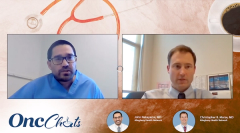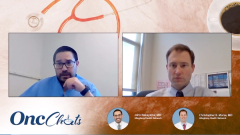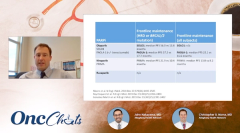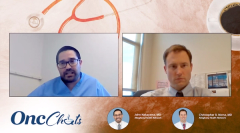
Taking Action to Individualize Ovarian Cancer Care: Key Takeaways
In this fifth episode of OncChats: Taking Action to Individualize Ovarian Cancer Care, John Nakayama, MD, and Christopher Morse, MD, share key takeaways from their discussion on how to best individualize care for patients with ovarian cancer.
Episodes in this series

In this fifth episode of OncChats: Taking Action to Individualize Ovarian Cancer Care, John Nakayama, MD, of the Division of Gynecologic Oncology, Allegheny Health Network, and assistant professor of OBGYN at Drexel University, and Christopher B. Morse, MD, gynecologic oncologist, Allegheny Health Network, share key takeaways from their discussion on how to best individualize care for patients with ovarian cancer.
Nakayama: In summary, we have covered a lot of ground. BRCA is clearly very important. Homologous recombination, in general, is very important in the treatment of [patients with] ovary cancer. We have a large number of patients who will benefit, at least in terms of progression-free survival, with
We have already shown that it is helpful in the recurrence space, and as we showed you today, it is also helpful in the frontline space. The question is, what do we do moving forward? Is that trying the PARP again in a sub-selected population? Is that adding in other drugs that may recapitulate a PARP sensitivity, such as ATRI inhibitors or WEE1 inhibitors? I think we all eagerly await the answers to these questions.
I would like to thank Dr Morris very much for sharing his expertise with us today. I feel like we have covered all the important aspects of frontline treatment in [ovarian cancer with regard to] PARP [inhibitors] and BRCA [mutations].
I would also like to thank everyone who watched us today and please tune in for our next episode.









































